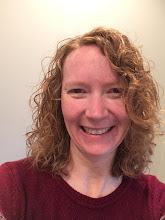Today's post will be quick because I just wanted to share a realization I came to this week.Mostly I'm sharing it to see if I'm weird as a writer, or if there are other people out there like me.
So, I submitted a chapter to my critique group last week, and I actually received very little negative feedback. This was kind of surprising to me because I was a little bit nervous about this particular chapter. It dealt with a topic or idea I don't feel particularly proficient in, and a style of writing that I have no experience with. In other words, it was out of my comfort zone, and accordingly I thought it would need a lot of work. Hence, the surprise at the comments.
This has happened to me one other time on my other novel. A different topic, a different writing style, but equally unfamiliar. The comments at that point were that it was more detailed and engaging than the rest of the story.
So, two different ways to take these comments, both of which I have vacillated between. First of all, bummer that the rest of my writing obviously sucks because it needs to much work. Second of all, cool that I can write something I'm unfamiliar with well.
But the real question to me is: why? I've been thinking about that for a few days, and the only reason I can come up with is a greater attention to the writing. Most of the time I am just trying to get the story out. And it's an amazing, wonderful, awesome story...until my critiquers get a hold of it, and then I realize how much work it needs. But these unfamiliar pieces I give more focus to. I want to make sure they are just right, and they fit the "genre" I'm playing with, that I spend more time on them. (If only I could/would spend that same amount of time on the rest of it...or even knew how for that matter.)
At least that's my working theory. Any other thoughts?
So, I submitted a chapter to my critique group last week, and I actually received very little negative feedback. This was kind of surprising to me because I was a little bit nervous about this particular chapter. It dealt with a topic or idea I don't feel particularly proficient in, and a style of writing that I have no experience with. In other words, it was out of my comfort zone, and accordingly I thought it would need a lot of work. Hence, the surprise at the comments.
This has happened to me one other time on my other novel. A different topic, a different writing style, but equally unfamiliar. The comments at that point were that it was more detailed and engaging than the rest of the story.
So, two different ways to take these comments, both of which I have vacillated between. First of all, bummer that the rest of my writing obviously sucks because it needs to much work. Second of all, cool that I can write something I'm unfamiliar with well.
But the real question to me is: why? I've been thinking about that for a few days, and the only reason I can come up with is a greater attention to the writing. Most of the time I am just trying to get the story out. And it's an amazing, wonderful, awesome story...until my critiquers get a hold of it, and then I realize how much work it needs. But these unfamiliar pieces I give more focus to. I want to make sure they are just right, and they fit the "genre" I'm playing with, that I spend more time on them. (If only I could/would spend that same amount of time on the rest of it...or even knew how for that matter.)
At least that's my working theory. Any other thoughts?

Comments
Post a Comment